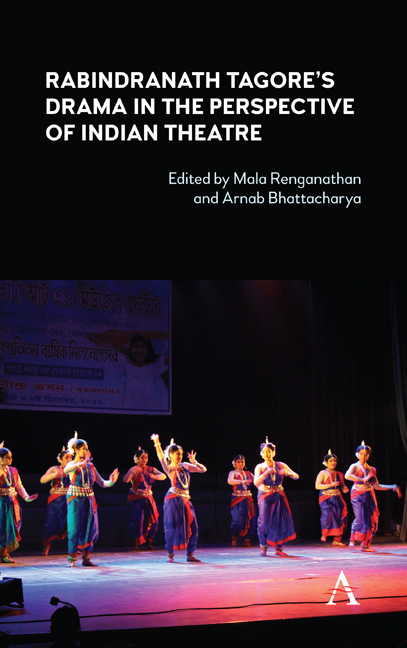Chapter 9 - Performing Chitrangada: From Tagore to Rituparno Ghosh
Published online by Cambridge University Press: 20 January 2022
Summary
At a time when dance was perceived as profane and a somewhat carnal performative accessory to debauchery, Rabindranath Tagore's nritya-natyas (dance dramas/musicals) helped restore the aesthetic value of dance thus providing it a respectable entry into every Bengali household. In later decades, these musicals became as much a marker of Bengal's cultural identity as the songs composed by Tagore. Yet, while women from elite and respectable Bengali households were putting up laudatory shows on stage, Tagore's inclusion of male performers earned for them nothing more than a begrudging acceptability – begrudging, because male dancing was (and still is) considered counter-masculine and a universally accepted equivalent of derisive effeminacy. Unlike Bengali women for whom dancing to the tune of a Tagore musical became an accepted and – perhaps expected – trait of her feminine grooming, the response to male performers was hesitant or lukewarm at the most. Whether or not Tagore's sustained experiments with the aesthetics of dance encouraged the dissolution of gender binary or a ‘resolution of the women's question’ for that matter (seen from Partha Chatterjee's understanding of anti-colonial modernism) is beyond the scope of this chapter. What interested me was how this burgeoning school of performance made way for new and compelling narratives of gender and sexuality. In this chapter, I will try to take a close look at the performance of Tagore's dance drama Chitrangada in two filmic representations of two different eras: Tarun Majumdar's popular family melodrama Dadar Kirti (1980) alongside what can be considered film-maker Rituparno Ghosh's swan song Chitrangada: The Crowning Wish (2012). Majumdar's endearing family melodrama employs a snippet of Tagore's Chitrangada as a crucial device to apparently narrativize the classic boy-meets-girl sequence. The latter is a nuanced, yet profoundly troubled reading of Tagore's source text by a transsexual performer who is seeking a feminine (and female) reincarnation – an identity migration using modern surgical procedures – to amend the painfully ruptured sense of self. For Rudra, Tagore's opera becomes a personal topic of his complex psychosexual navigation across socially entrenched categories of the body in search of a self beyond the contours of the gendered form of the body.
- Type
- Chapter
- Information
- Rabindranath Tagore's Drama in the Perspective of Indian Theatre , pp. 135 - 146Publisher: Anthem PressPrint publication year: 2020



